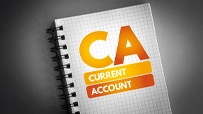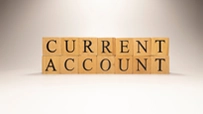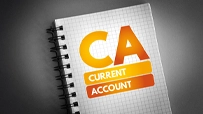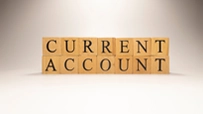Tips to Consider Before Opening a Current Account
May 06, 2025

As of early 2025, India has over 10 crore active current accounts, with digital current accounts alone witnessing a 42% year-on-year growth—driven by small businesses, freelancers, and start-ups. With rising digitisation, choosing the right current account isn’t just about a chequebook and overdraft; it’s about unlocking smarter features like UPI integrations, API banking, cash flow insights, and real-time settlements.
Whether you're a solopreneur, SME owner, or managing finances for a trust or society, selecting the wrong type of current account can lead to unnecessary charges, inefficient transactions, and missed opportunities. This guide helps you make the right choice based on your business structure, cash flow needs, and technology preferences.
Factors to Evaluate When Selecting a Current Account
Choosing a current account goes beyond comparing fees. Here’s what you should consider when evaluating options:
1. Type of Entity You Are
Different current accounts are designed for different legal entities—individual (proprietors or freelancers) or non-individual (partnerships, companies, NGOs, societies, etc.). You can read this blog to know more about individual and non-individual current account.
2. Digital Banking Capabilities
Look for current accounts offering end-to-end digital onboarding and integration with accounting software. A good digital current account saves time, reduces errors, and enables real-time financial control.
3. Monthly Average Balance (MAB) & Charges
Banks typically require maintaining a Monthly Average Balance (MAB). Falling below this may incur penalties. Choose an account with an MAB that aligns with your cash flow pattern.
4. Transaction Limits and Fees
Check for limits on cash deposits, NEFT/RTGS charges, and third-party transfers. For example, with Ujjivan’s Maxima Current Account, you have the flexibility to select your preferable cash deposit limit.
5. Value-Added Features
Consider benefits like Overdraft facilities, feature-rich Debit Cards, SMS/email alerts bulk payment support (ideal for payroll or vendor payments).
Why You Need a Current Account for Business
Running a business without a current account is like trying to operate a factory without electricity. Here’s why a dedicated current account is essential:
Ujjivan SFB offers a wide range of business current accounts – each meticulously curated to cater to your unique requirements.
Final Thoughts
In today’s fast-paced, digital-first business environment, choosing the right current account is a strategic decision. Whether you're a solo service provider, a growing D2C brand, or an NGO, your account should align with your operating style and scale. Prioritise digital accessibility, low fees, relevant features, and a bank that understands your business needs. Don't settle for a one-size-fits-all option—choose smart, bank better.
Disclaimer:
The contents herein are only for informational purposes and generic in nature. The content does not amount to an offer, invitation or solicitation of any kind to buy or sell, and are not intended to create any legal rights or obligations. This information is subject to updation, completion, amendment and verification without notice. The contents herein are also subject to other product-specific terms and conditions, as well as any applicable third-party terms and conditions, for which Ujjivan Small Finance Bank assumes no responsibility or liability.
Nothing contained herein is intended to constitute financial, investment, legal, tax, or any other professional advice or opinion. Please obtain professional advice before making investment or any other decisions. Any investment decisions that may be made by the you shall be at your own sole discretion, independent analysis and evaluation of the risks involved. The use of any information set out in this document is entirely at the user’s own risk. Ujjivan Small Finance Bank Limited makes no representation or warranty, express or implied, as to the accuracy and completeness for any information herein. The Bank disclaims any and all liability for any loss or damage (direct, indirect, consequential, or otherwise) incurred by you due to use of or due to investment, product application decisions made by you on the basis of the contents herein. While the information is prepared in good faith from sources deemed reliable (including public sources), the Bank disclaims any liability with respect to accuracy of information or any error or omission or any loss or damage incurred by anyone in reliance on the contents herein, in any manner whatsoever.
To know more about Ujjivan Small Finance Bank Products Visit:"https://www.ujjivansfb.in"
All intellectual property rights, including copyrights, trademarks, and other proprietary rights, pertaining to the content and materials displayed herein, belong
to Ujjivan Small Finance Bank Limited or its licensors. Unauthorised use or misuse of any intellectual property, or other content displayed herein is strictly prohibited and the same is not intended for distribution to, or use by, any person in any jurisdiction where such distribution or use would (by reason of that person’s nationality, residence or otherwise) be contrary to law or registration or would subject Ujjivan Small Finance Bank Limited or its affiliates to any licensing or registration requirements.
FAQs
1. What is the difference between a current account and a savings account?
A savings account is meant for personal use and restricts transactions to encourage saving, while a current account is designed for businesses, allowing unlimited transactions and offering features like overdraft and higher cash handling limits.
2. Can a freelancer or individual open a current account?
Yes, freelancers and sole proprietors can open individual current accounts tailored to their professional income. These accounts often have simplified KYC requirements and support UPI-based invoicing, making them ideal for gig workers.
3. Are digital current accounts secure and reliable?
Yes, digital current accounts offered by RBI-regulated banks and NBFCs are secure, with encrypted transactions, two-factor authentication, and real-time fraud monitoring. Always choose a bank with strong cyber security protocols and transparent terms.
4. Can I link my current account to accounting software or payment gateways?
Absolutely. Many modern current accounts support integration with platforms enabling seamless invoicing, reconciliation, and real-time payment tracking to improve business efficiency.
Latest Blogs

Banking Safety Guide: How to Avoid QR Code Frauds While Making Payments
India’s love for QR code payments has made transactions lightning-fast, but also opened a new front for cybercriminals.

Scam Alert! Phishing, Vishing, and Smishing Can Drain Out Your Finances
Digital banking in India has transformed the way we manage money.

India’s New GST Reform Bill: What GST 2.0 Means for You
India’s indirect tax system is entering a landmark new phase.

Capital Adequacy Ratio (CAR): Meaning, Formula, and RBI Norms
Banks run on trust — but trust alone cannot guarantee stability. A sudden surge in bad loans or a market shock can quickly weaken even the largest institutions.

ITR Filing Penalties: What You’ll Pay in Fees, Interest, and Compliance Costs
The Income Tax Department extended the ITR filing deadline for FY 2024–25 to September 15, 2025, giving taxpayers a second chance after the original due date lapsed.





